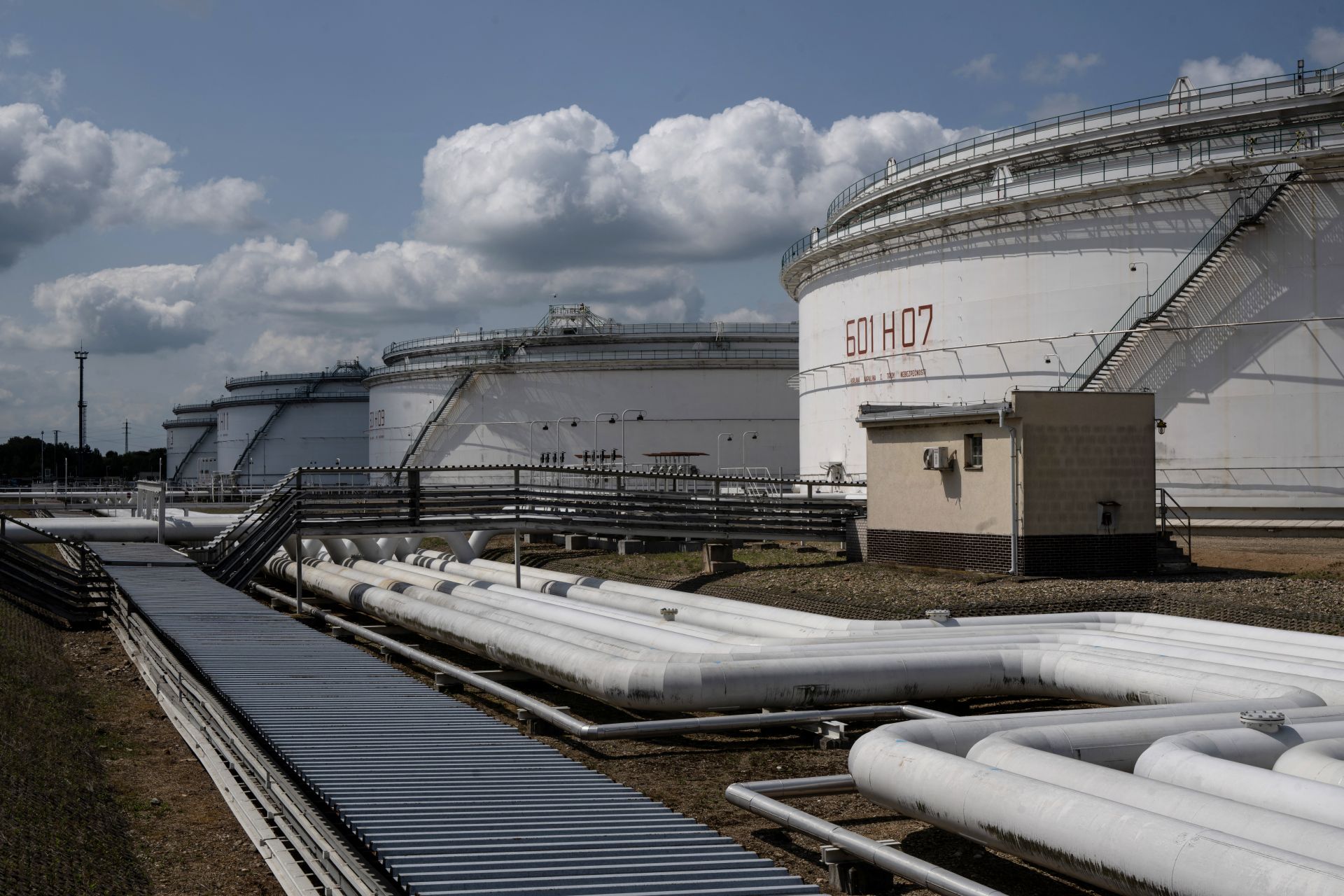- Home
- Middle East
- Ukraine Strikes Put Pressure on Russian Oil

This photo taken on June 17, 2025, in Nelahozeves, near Kralupy nad Vltavou, shows the storage terminal and oil pipelines of the state-owned company MERO, which transports crude oil and protects the Czech Republic's strategic reserves. ©Michal Cizek / AFP
Ukraine is intensifying strikes on Russian refineries and oil infrastructure, with more than 30 attacks since early August, aimed at weakening Moscow's ability to finance war against its neighbor.
Current Consequence?
Russia is the world's third-largest producer and second-biggest exporter of crude oil. Oil and gas revenues represented about 30 percent of its budget in 2024, or largest source of state funds, according to the Oxford Institute for Energy Studies.
Kyiv's attacks have so far been "quite effective," with Russian refinery production rates having "dropped around 10 percent", Homayoun Falakshahi, an analyst at energy research group Kpler, told AFP.
Faced with a risk of shortages, Moscow recently restricted exports of petroleum products until the end of the year and extended a ban on gasoline exports.
Rystad Energy analyst Janiv Shah told AFP that Russia's refinery production dropped to an average of 4.9 million barrels per day by mid-September, down about 400,000 bpd compared to the first half of 2025.
The scarcity of Russian refined products has significantly widened the gap between the price of a barrel of Russian crude oil and that of refined products.
The impact on pump prices is already being felt. As of September 1, retail gasoline cost 6.7 percent more compared to the end of 2024, according to Russia's official statistics agency Rosstat.
This despite a sharp drop in the price of a barrel of crude oil over the same period.
Long-Term Impact?
Russia's situation risks worsening because damaged infrastructure typically takes an "extended time" to return to normal operations, Shah explained.
This at a time when revenue from Russian crude oil is primarily affected by falling global prices as markets expect abundant supplies in the coming months.
SEB bank analyst Bjarne Schieldrop believes the "situation will likely become worse... as Ukraine becomes better at attacking Russian refineries", forecasting an end to exports of all Russian oil products as well as the introduction of domestic rationing.
The US envoy to Ukraine, Keith Kellogg, has floated the possibility of long-range strikes by Ukraine against Russia using American weapons.
In trying to export some of the oil intended for its refineries, Russia has come up against difficult logistical problems, while the number of countries willing to import more of its crude is limited.
Strikes Versus Sanctions?
So far, international sanctions aimed at weakening Moscow "are not working", according to Adi Imsirovic, director of the Surrey Clean Energy consultancy.
Delayed implementation of certain sanctions gave Russia's President Vladimir Putin time "to build a parallel trading system", he told AFP.
Washington's doubling of tariffs on many of India's products has failed to curb the country's purchase of Russian crude.
On the other hand, with the withdrawal of Western oil companies from Russia, investment in the nation's energy infrastructure has declined considerably, limiting its ability to increase crude output over the coming years.
Russia, which produces "around 9.25 million barrels per day", according to Falakshahi, has a "maximum production capacity of 9.45 mbpd" compared to around 10 mbpd before the war.
With AFP
Read more



Comments